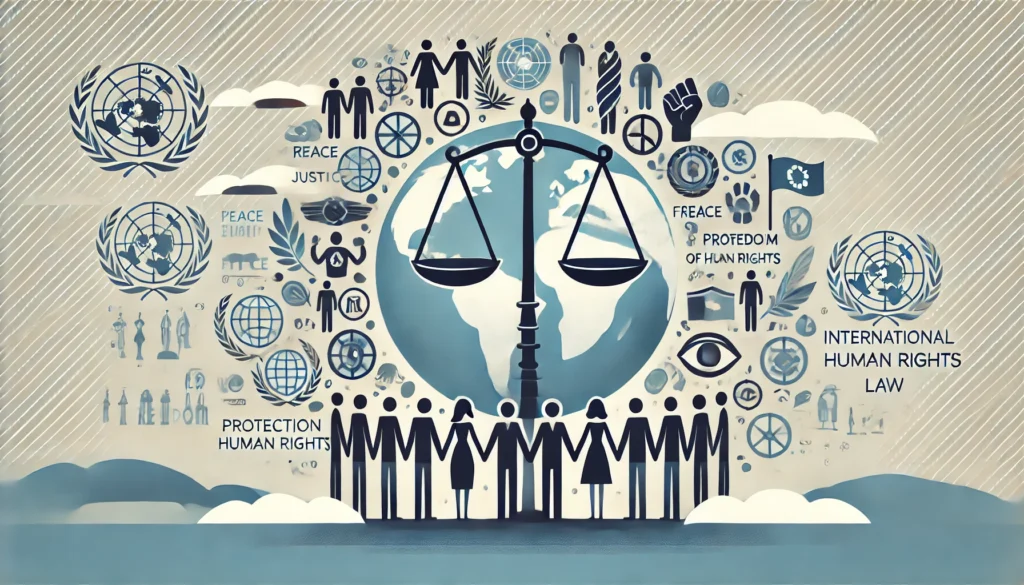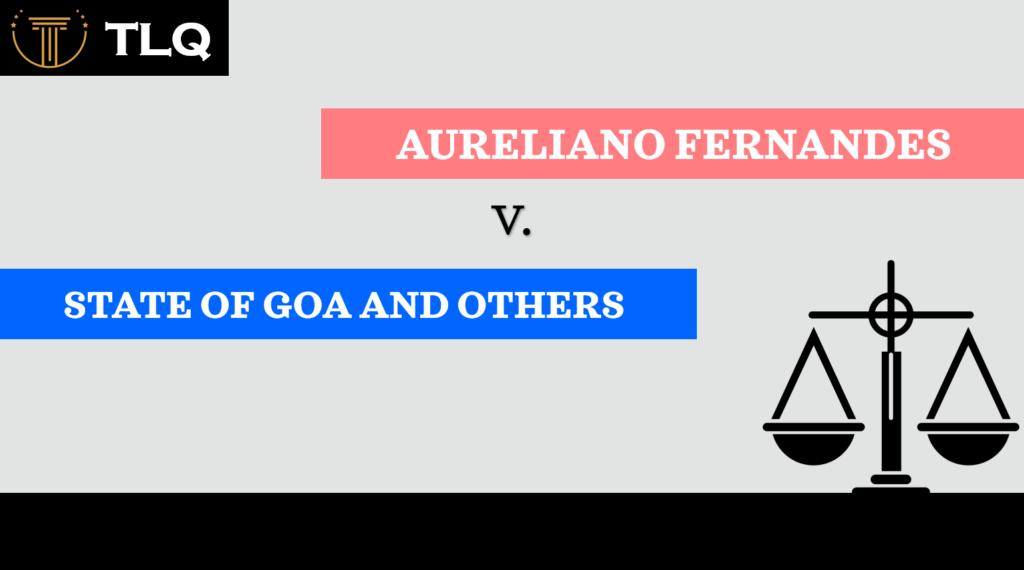Published On: 27th December, 2024
Authored By: Shrinkhla Singh
VIT School of Law, Chennai
Judge Bench
A five-judge Constitutional Bench led by Justice Sanjay Kishan Kaul consisting of other eminent judges like Justice Sanjiv Khanna, Justice Abhay S. Oka, Justice Vikram Nath, and Justice J.K. Maheshwari.
Abstract
The Bhopal Gas Tragedy, often recognized as one of the worst industrial disasters in history, has profoundly impacted India’s corporate liability legislation. This paper examines the significant legal developments stemming from the case, particularly in relation to judicial precedent, the principle of absolute liability, and corporate accountability for environmental protection. It analyzes the case’s facts, issues, ratio decidendi, and obiter dicta, illustrating how the Supreme Court established new benchmarks for industries deemed hazardous. The outcomes of this landmark judgment not only shaped legal standards but also redefined corporate responsibilities toward public safety and environmental stewardship.
Introduction
The Bhopal Gas Tragedy[1] That happened in December 1984 is an important environmental[2] and corporate law[3]. The event in this case was massive in size and effects and produced a significant scholarly response. The largest industrial accident involving the use of toxic gas occurred in the Union Carbide India Limited (UCIL) plant, where a gas leak spewed about 40 tons of methyl isocyanate (MIC)[4] Gas and people more than half a million.
Facts
UCIL now known as Union Carbide India Limited is a former subsidiary of the Union Carbide Corporation (UCC) in the United States, started the Bhopal plant for manufacturing pesticides in the mid-1970s. The risk which resulted from the close location of the plant to populated areas is that dangerous chemicals were being stocked in the plant; especially MIC or methyl isocyanate. Leaking from a defective drain trap on the night of December 2-3, 1984, water penetrated an MIC storage tank, thus, provoking an uncontrolled exothermic process. Owing to safety systems not being rightly maintained the poisonous MIC gas came off and threatened the Bhopal city most dangerously. The consequences were thousands of people’s deaths within the immediate vicinity of the explosions and hundreds of thousands who lived with chronic health problems, such as respiratory disease and blindness. Much revealed that put both UCIL and UCC under scrutiny, such as inadequate regulatory mechanisms, contractual safety, and established disaster plans. Media highlighted this incident and put pressure on Indian legal systems about how to hold an MNC corporation legally responsible while aggravating debates over corporate legal responsibility, environmental safety, and victims’ compensation. It was also instrumental in bringing about a spate of regulatory changes and awakening the world on the cost of corporate recklessness in adverse industries.
Issues
- DETERMINATION OF CORPORATE LIABILITY: The first difficulty was whether UCC, a management organization, could be held legally responsible for the operational failures of UCIL, which is an example of cross-border corporate governance.
- FAIR COMPENSATION FOR VICTIMS: Fixing reasonable and fair remuneration for victims of drinking blatantly formed into a polarizing issue. The Supreme Court looked into whether the $470 million agreed to be paid as a settlement was reasonable and fair in light of the disaster.
- ENVIRONMENTAL AND SAFETY REGULATIONS: The case also brought issues concerning the adequacy of industrial regulations particularly in industries involving process complications involving dangerous substances. It analyzed how Safety was the responsibility of UCIL and how Regulatory bodies were responsible for the implementation of Preventive Measures.
Obiter Dicta
In its observations, the Supreme Court looked at gaps in the existing laws of industrial safety.[5] And asked for reform with differences. In the justices’ own words, MNCs should not bring their standards down to the platinum level of the host country but should operate at the international best practice level. This assertion posits this assertion puts into consideration the importance of undoing corporate Jadedness and more so, the safety of the public.
Furthermore, the Court dealt with questions concerning corporate governance, and more specifically, the immanent dangers of dangerous industries. Through the charges that the Court leveled against the companies for their operational practices, the Court began the foundation for what would later be termed CSR. It asserts that businesses should determine the degree of social and economic effects of their operations in creating awareness of compliance and sustainability. The Court’s decision as much as the Court speaking, held the course of the responsibility of corporate entities to conduct business that will not harm but benefit societal interests, and that executives owe a duty of reasonable care and cooperation in an enterprise, premising the right of man respecting the community and the earth. These theoretical assumptions therefore in the course of this paper form the basis for the current debates on corporate ethics and accountability.
Ratio Decidendi
This gravamen of this case was the principle of absolute liability. Absolute liability is where one who undertakes a dangerous business enterprise is responsible for any loss occasioned, regardless of negligence or an act of God. The judgment of the Supreme Court defined the scope of dangerous activities that corporations in high- risk industry should adopt a maximum standard of safety measures and discharge absolute liability for the accident and traced out that most of the common law defences available under a strict liability regime like contributory negligence of victim or ‘act of God’ are not applicable.
The decision turned heed from the previous strict liability bench formulated in Rylands v. Fletcher.[6] And underscored India’s shift in policy stance on industrial responsibility and held that firms handling hazardous substances cannot transfer their risk to outsiders.
Judgment
In Union Carbide Corporation v. Union of India, the Supreme Court found UCC liable, upholding a $470 million damages award to victims. The settlement sought by the court was mainly to get quick interim orders owing to the socio-economic vice that survivors undergo. However, the amount of compensation received was condemned by civil society organizations and legal experts as inadequate raising issues concerning reasonable compensation and the necessity of a much more effective framework for industrial catastrophes.
It led to legislative measures such as the Environment (Protection)[7] Act 1986 to counterpoise new measures of safety in hazardous establishments. Further, the case highlighted concepts of governance setup for the timely and adequate compensation to the victims of industrial disasters.
Discussion on Legal and Ethical Implications
- IMPACT ON ENVIRONMENTAL LAW AND CORPORATE LIABILITY[8]: The Bhopal Gas Tragedy realized major deficiencies in Indian environmental law implying important changes in legislation to avoid further industrial catastrophes. Hercules resolved the need for proper legislation to ensure that corporations were to be held responsible, and victims’ rights could be enforced in case of risky accidents. There was the Public Liability Insurance Act of 1991[9] Which provided for mandatory Insurance of industries dealing in hazardous substances and products so that Industrial victims get compensated without delay. This legislation sought to guarantee public well-being by ensuring that industries gave an economic guarantee for liabilities that the enterprise might pose to society thus strengthening corporate accountability in risky industries.
- CORPORATE SOCIAL RESPONSIBILITY (CSR): The Bhopal gas tragedy shifted the dynamics of corporate social responsibility reminding the business organization that it has moral and legal responsibilities of operating for the benefit of the community. The event therefore showed that companies’ operations impact communities in ways that are often not articulated gaining spotlight on discussion of operational exposure. It emphasized the fact that corporations have to put preventive safety measures and risks that may endanger the public, thus pointing out that businesses are obliged to society to be accountable and responsible, especially in hazardous business.
- ABSOLUTE LIABILITY DOCTRINE[10]: Absolute liability has been established by the parliament from the apex court in the historical Bhopal Gas Tragedy has benefited the industry besides promoting safety standards and corporate governance. The difference between the two approaches is that while strict liability demands full responsibility for any harm caused, irrespective of the prima facie evidence of the firm’s negligence the absolute liability goes further to demand full responsibility irrespective of the degree of risk inherent in the activity. This doctrine has since been relied on when making decisions across industries to help foster the notion that corporations sharing wherever they are located bear the responsibility to place the public’s safety over their operational risks hence necessitating high accountability and standards in industries dealing with hazardous materials.
Conclusion
The norms of the Bhopal Gas Tragedy case still play an important role in the development of Indian environmental and corporate law and contribute to establishing liability for dangerous industries all over the world. The Supreme Court decision raised expectations for corporate behaviour by stating that protecting public health is more important than industrial or business interests. This judgment set a precedent to use the doctrine of absolute liability which means that companies involved in naturally inherent hazardous activities cannot be exempted from liability even in reasonable/ unforeseeable times. This principle remains an important protection platform right today – it guarantees the people in the surrounding areas of industrial facilities legal remedies regarding their right to a safe environment. Consequently, this case has set the basis for legislative changes regarding environmental protection and corporate responsibility to advance the principles that environmental protection is an inalienable right, an element of human dignity and the common good.
Reference(s):
[1] Ajoy Karpuram & R. Sai Spandana, SCO Explains: The Bhopal Gas Tragedy, 40 Years Later, Supreme Court Observer (Jan. 24, 2023), https://www.scobserver.in/journal/sco-explains-the-bhopal-gas-tragedy-40-years-later/#:~:text=A%205%2DJudge%20Constitution%20Bench%20led%20by%20Justice%20Sanjay%20Kishan,Attorney%20General%20R.
[2] The Environment (Protection) Act, No. 29 of 1986, Acts of Parliament, 1986 (India), enacted in response to the Bhopal Gas Tragedy to enhance environmental safeguards.
[3] G.S. Bajpai & Bir Pal Singh, The Bhopal Gas Disaster and Corporate Criminal Negligence, in International Crime and Justice (Mangai Natarajan ed., Cambridge University Press, 2014), https://www.cambridge.org/core/books/abs/international-crime-and-justice/bhopal-gas-disaster-and-corporate-criminal-negligence/94BB44AB0F79C34C15E075A135374C40.
[4] Methyl Isocyanate, Merriam-Webster Online Dictionary, https://www.merriam-webster.com (last visited Oct. 26, 2024).
[5] Dr. Subramanian Swamy v. Dr. Manmohan Singh & Anr., (2012) 3 SCC 64, available at https://indiankanoon.org/doc/27098883/.
[6] (1868) LR 3 H.L. 330, [868] UKHL 1.
[7] Unnati Tolani, Bhopal Gas Tragedy: The Unfolding of an Economic and Environmental Disaster (Amogh Sangewar ed., August 13, 2021).
[8] Edward Broughton, The Bhopal Disaster and Its Aftermath: A Review, 4 Env’t Health Art. 6 (2005).
[9] Public Liability Insurance Act, 1991, Probus Insurance (last visited Oct. 26, 2024), https://www.probusinsurance.com/corporate-insurance/business-articles/public-liability-insurance-act-1991/.
[10] Uditanshu Pratap Singh, Case Analysis of Bhopal Gas Tragedy with Reference to Absolute Liability and Polluter Pays Principle, Indian Journal of Law and Rights (last visited Oct. 26, 2024), https://www.ijlra.com/paper-details.php?isuurl=case-analysis-of-bhopal-gas-tragedy-with-reference-to-absolute-liability-and-polluter-paays-principle-by-uditanshu-pratap-singh-#:~:text=The%20Union%20Carbide%20Corporation%20had,of%20Enviro%2DLegal%20Action%20v.




